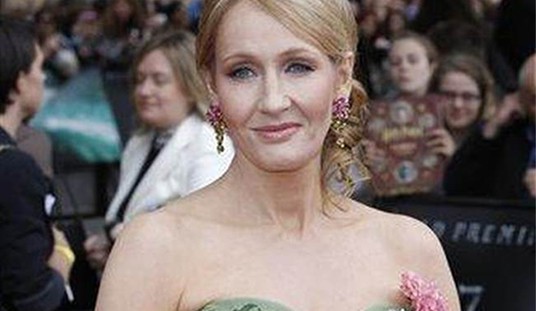“Shock,” “Anger,” “Earthquake”—those are among the more frequent epithets employed to describe this weekend’s European elections. All across the continent, voters turned out to deliver a resounding defeat to the top-down, politically correct, big-government, Brussels-centric, rule-by-unaccountable-elites project that is the European Union. For years, Brussels has demanded allegiance to its mildly socialist species of transnational progressivism. Local initiatives were everywhere forced to give way to the whimsical diktats disgorged by distant bureaucrats. The healthy, homegrown sentiments of national identity and robust patriotism were systematically stymied as Brussels-based politicians set about imposing their anemic version of utopia in which there would be no Frenchmen or Germans or Italians or Englishmen but only that shadowy abstraction a “European,” a creature that doesn’t actually exist but might be willed into being by a regulatory superstate that was environmentally sensitive, always and everywhere alert to signs of racism and Islamophobia, reflexively suspicious of capitalism, hostile to Israel, and contemptuous of the United States. It didn’t work and now the voters, in a gigantic act of political reverse peristalsis, have delivered the first step in what promises to be a thoroughgoing rejection of the European project.
The response from the organs of establishment sentiment has oscillated between astonishment and anxiety. The Financial Times, under the headline “Eurosceptics storm Brussels,” leads with the news that “France’s far-right Front National stormed to victory in European elections on Sunday night, leading an unprecedented surge in support for anti-EU parties across Europe that was set to reverberate far beyond Brussels politics.” The fact that the FN is led by Marine Le Pen, daughter of the much-maligned Jean-Marie Le Pen, adds a dash of horror to the mix. How can this be happening? How is it that in Great Britain, Nigel Farage’s UK Independence Party snapped up 30 percent of the popular vote and increased its seats in the European Parliament from 11 to 24? It was only a couple of years ago that Farage and UKIP were dismissed as a “fringe” party, a congeries of unappealing political neanderthals who, in a more enlightened world, would either be locked up or not exist. And yet here they were, “the biggest winner,” as the FT mournfully reports, in the UK’s European race. Geert Wilders, the charismatic Dutch populist, did not do as well as many of his euro-sceptic confrères. But “among other eurosceptic parties,” the FT notes, “the Danish People’s party was set to become the biggest in Denmark with about 25 percent of the vote. Meanwhile, Austria’s populist party, the FPÖ, is set to finish third with 20 percent of the vote – against 12.7 percent in 2009.”
What is going on? Jean-Francois Copé, president of France’s center-right UMP, observed that the vote for Le Pen’s Freedom Party was a sign of “gigantic anger” among the French electorate. He got that right. But the anger is directed not just against the confiscatory socialist policies of President François Hollande. It is directed more broadly against the anti-nation-state bias of the European Union. The architects of the EU envision a European superstate in which national identity is subordinated to the abstraction of “Europe.” The regime would be internationalist but only titularly democratic: the real power (as has been traditional on the continent) would reside in a technocratic elite, not the people. But the people, it seems, have just awakened to this reality and it turns out they don’t like it. Marine Le Pen was surely correct yesterday when she said: “What has happened tonight is a massive rejection of the EU.”
What happens next is anyone’s guess. But one take-away from yesterday’s election is this: when conservative parties cease providing a natural home for the community-binding sentiments of patriotism and national identity—when, that is to say, conservative parties cease being conservative—those parts of the population not indentured to the apparatus of dependency look elsewhere. What Manuel Valls, the French prime minister, said of the victory of Le Pen’s Freedom Party is true of eurosceptic victories across the continent: it is, he said,“a shock, an earthquake that all responsible leaders must respond to.” We’ll see how many responsible leaders there are who will acknowledge the obligation.
Related from Michael Ledeen: Is Italy’s Center-Left Prime Minister Really a Neocon?









Join the conversation as a VIP Member